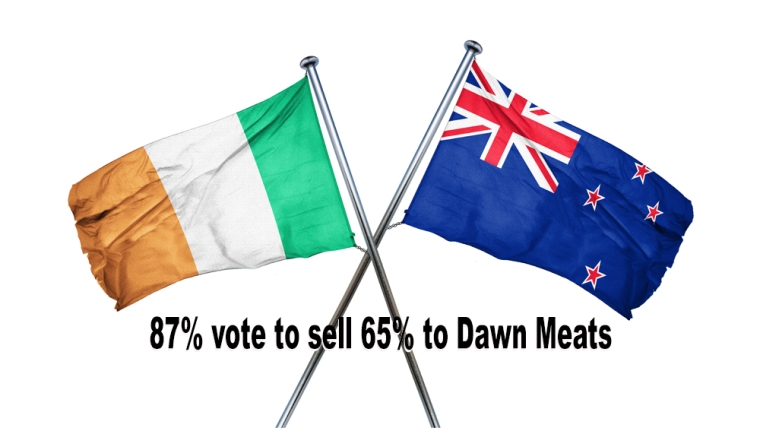
It looked as though it would be close, but the outcome of the Alliance shareholder vote on the Dawn Meats offer was a landslide with 87% voting in favour of the deal.
There was a late rearguard action by a group of large shareholders to persuade the rest of the shareholders to vote the proposal down and pursue an alternative scheme which would have entailed further equity investment via deductions from livestock proceeds, asset sales and future profits.
Most of the shareholders had probably made their minds up and voted long before this alternative was presented to them. Sensibly the majority worked out that a better offer wasn’t forthcoming and if they voted against it, the banking syndicate would carry out its threat to call in the receivers.
The naysayers argued that the banks would not be stupid enough to close the doors before the processing season got underway in the new year, but that always looked like a risky act of blind optimism. Clearly the banks want a clean exit without having to write any of their debt off and the Dawn Meats deal provides exactly that, especially as it had already been approved by the Overseas Investment Office.
Any alternative based on shareholder deductions (would they be voluntary or compulsory?), asset sales (what would these be?) and future profits (not guaranteed) would be highly uncertain, especially over the proposed three-year timeframe.
Shareholders decided by a wide margin they did not want to invest more capital in a cooperative in which they already hold shares without any guarantee they would ever get their money back. Realistically a farmer’s first commitment is to the farm and the destination of livestock supply can be negotiated with several processors.
At least Dawn Meats’ investment in Alliance guarantees business continuity in the short to medium term which ensures suppliers will be able to get their livestock killed and be paid. Longer term is less certain, as Dawn will inevitably want to make decisions about plant efficiencies, capacity and strategic direction.
Both parties to the partnership have made much of the synergies available for value creation from the arrangement, although these may not be so easy to realise, unless there are previously untapped market opportunities. Generally the meat industry has been very adept at recognising opportunities for value capture. Where some companies have been less adept is in controlling costs of market investment in the opportunities. In the New Zealand meat industry
An essential meat industry adage is that it is essential to ensure the margin available from each part of the carcase exceeds the cost of recovery. Where this becomes harder to evaluate is beyond the point of processing. Controlling the cost of the sales and marketing channel is just as important.
The question now is whether this latest development will change the state of the meat industry. At first glance it preserves a status quo with no change of available capacity to process a diminishing supply of livestock. Each processor must now evaluate their competitiveness in the expectation Dawn Meats will wish to bring Alliance up to industry best.
This will not come cheap. On top of the investment of $270 million to buy into Alliance, I estimate it will take a similar amount to upgrade the assets. It is hard to believe Dawn intended to invest half a billion dollars in buying its stake before it can start to earn a return on the capital. The next 12 months will be very interesting, but at least the immediate future is assured.

We welcome your comments below. If you are not already registered, please register to comment
Remember we welcome robust, respectful and insightful debate. We don't welcome abusive or defamatory comments and will de-register those repeatedly making such comments. Our current comment policy is here.